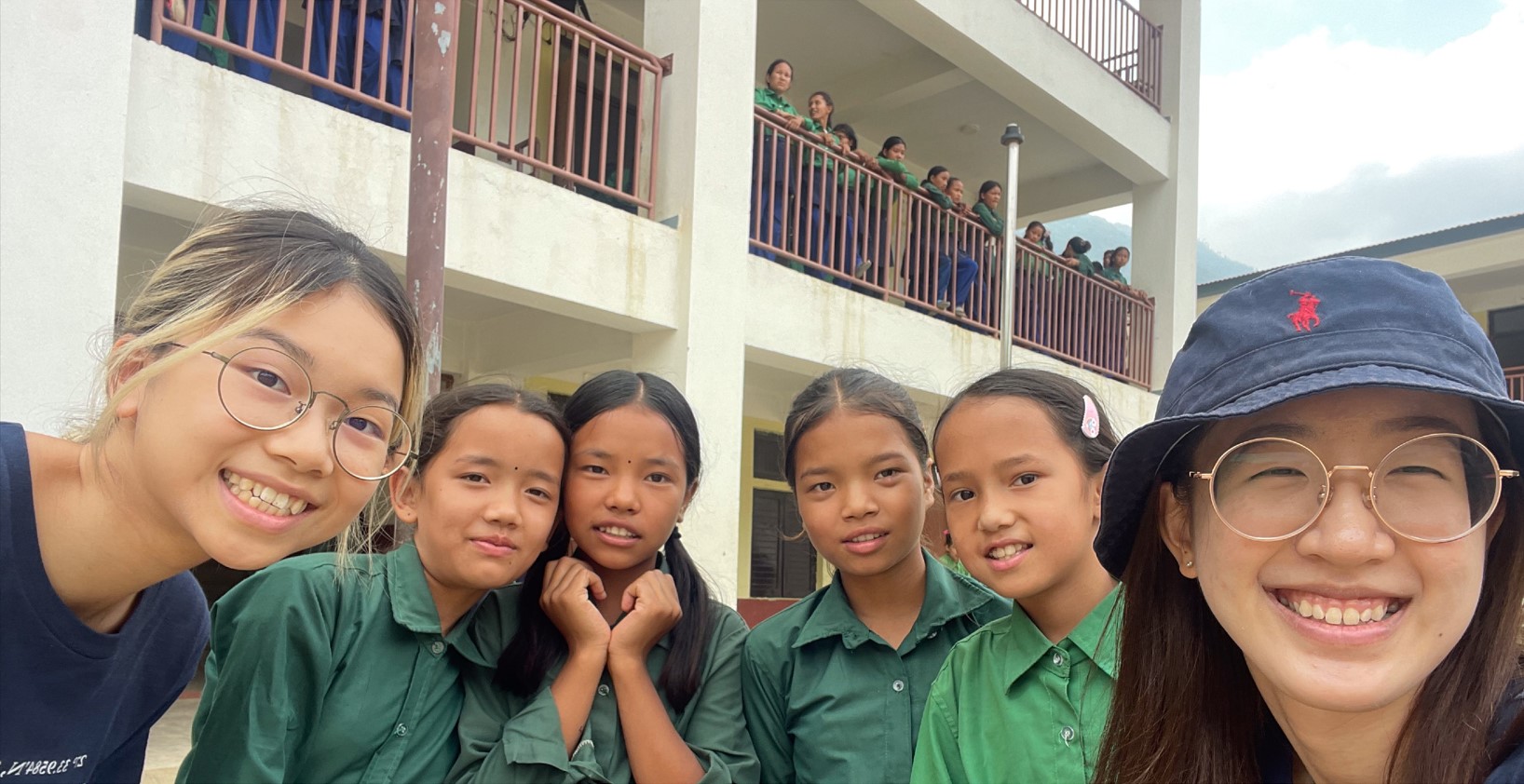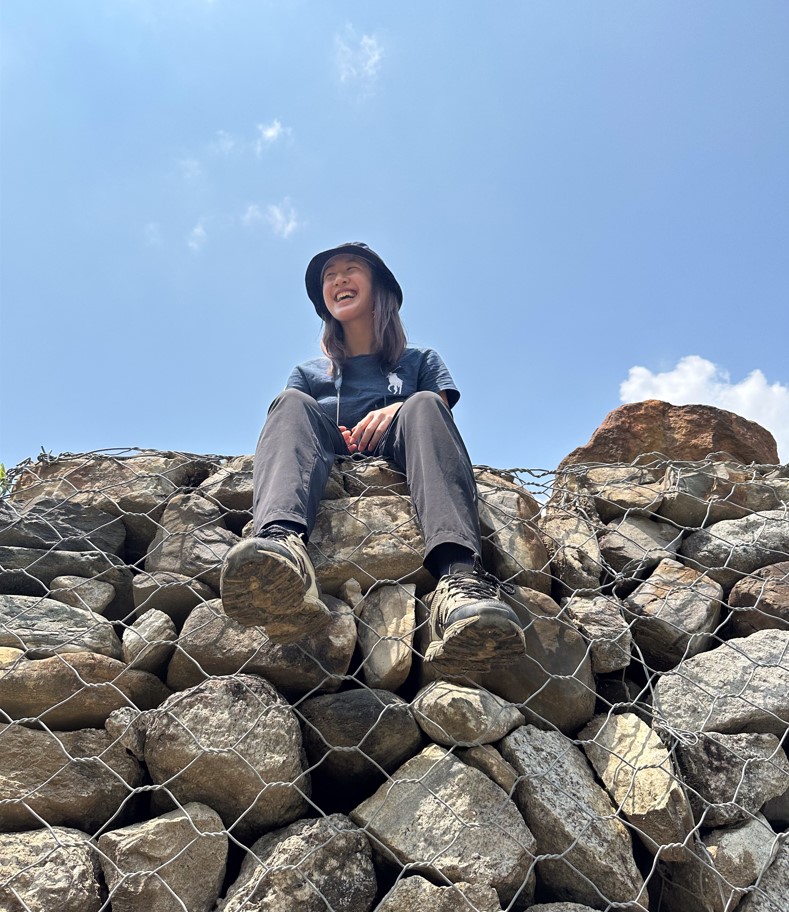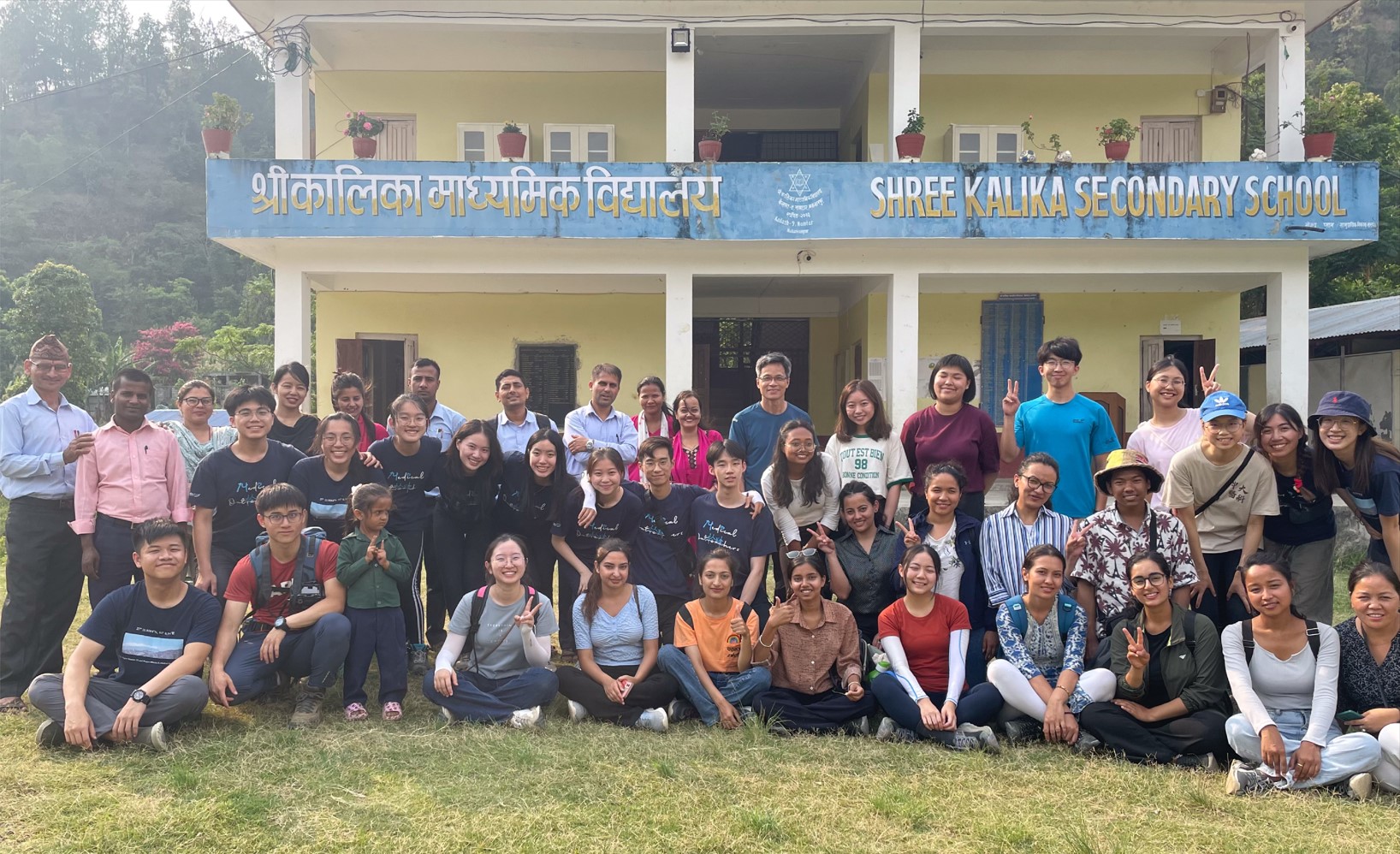
 Campus Newsletter
/ In Dialogue with Excellence
Campus Newsletter
/ In Dialogue with Excellence 
When there are so many people in the world are suffering and our power seems so insignificant, what is the true purpose of volunteering? This is perhaps a question we have been contemplating all along. In June 2023, Ms. Tsang Cho Man, a third-year Chung Chi student studying medicine, participated in a service trip organized by the “Medical Outreachers” through the College’s FLY Award. Together with 12 other students from The Chinese University of Hong Kong, they visited Nepal for 23 days. Through this experience, Cho Man came to understand that volunteering is not only about helping others but also about broadening one’s horizons. Even with limited resources, one should continue to strive and give more.
Q: Why did you choose to volunteer in Nepal?
Before embarking on this journey, I had a strong desire to apply the medical knowledge I had acquired in areas that required assistance. At the time, I was still a second-year medical student, and I had an insatiable curiosity to explore the world, gain insights into different healthcare systems, and consider the contributions that medical student volunteers could make to impoverished nations. I was convinced that to truly understand these matters, I needed to personally visit such places. I therefore select Nepal as my destination.

Throughout this volunteer journey, Cho Man realized that exceeding one’s limitations requires unwavering perseverance.
Q: Which areas of Nepal did you volunteer in?
I distinctly recall the day of our arrival in Nepal, where we were immediately met with temperatures reaching 40 degrees Celsius. After a seven-hour journey on a coach without air conditioning, open windows and with worn-out seats, we traveled from the capital city of Kathmandu to the remote villages of Namtar. Over the following 22 days, we immersed ourselves in two rural regions, Namtar and Bharta, conducting visits to over 200 households. Through comprehensive questionnaires, we gained profound insights into their daily hygiene practices and overall health conditions. Each family received essential supplies, including soap, toothpaste, and toothbrushes, accompanied by instruction on proper handwashing techniques. In addition to our service to the local farmers, we also visited several nearby primary and secondary schools. At these schools, we imparted students of different grades with knowledge on various aspects of health and medicine, including sexual education, hand hygiene, toothbrushing techniques, and the importance of a balanced diet using the food pyramid as a guide.

Cho Man has visited several local primary and secondary schools, where she taught students about health and medical knowledge.
Q: What were some memorable experiences or challenges during these 23 days? What did you learn from them?
In Nepal, climbing mountains in temperatures reaching 40 degrees Celsius was our daily activity. This presented me with the key challenge of maintaining physical fitness. I rarely exercised before, so it was hard to adapt to the reality that I needed to spend nearly six to seven hours a day visiting villagers in the hill. The physical discomfort and the distress of holding the team back frustrated me. However, it was in this journey that I learned the invaluable lessons of perseverance and personal accountability. I realized that I have to insist on overcoming my limitations. Despite my physical shortcomings, my teammates were patient and supportive. They helped me a lot when I was extremely exhausted, enabling me to gradually find my rhythm and master the art of mountain climbing.
Q: What were the most profound aspects of completing the entire project for you?
The period spent in Nepal was undoubtedly challenging, yet it remains one of the most joyous chapters of my university life. In the local environment, we had no air conditioning or fans, and the mobile phone signal was often unstable. There were also frequent interruption to the electricity and water supply in the village, and candles were required for lighting. However, what we looked forward each day was returning to the dormitory to watch the sunset, gaze at the stars, enjoy meals, and drink cola. Some of our teammates would play the ukulele, and the rest of us would sing along. I had never imagined that such a simple way of life could bring me such immense happiness.
Furthermore, I observed that the local children had a different definition of “happiness” compared to us. Their moments of pure bliss were singing loudly and dancing during recess in the classroom or running around and playing on the playground. Yet for us, material abundance may make us happier. This realization made me reflect on the importance of contentment and cherishing what we have, so that I can experience true happiness and fulfillment more easily.